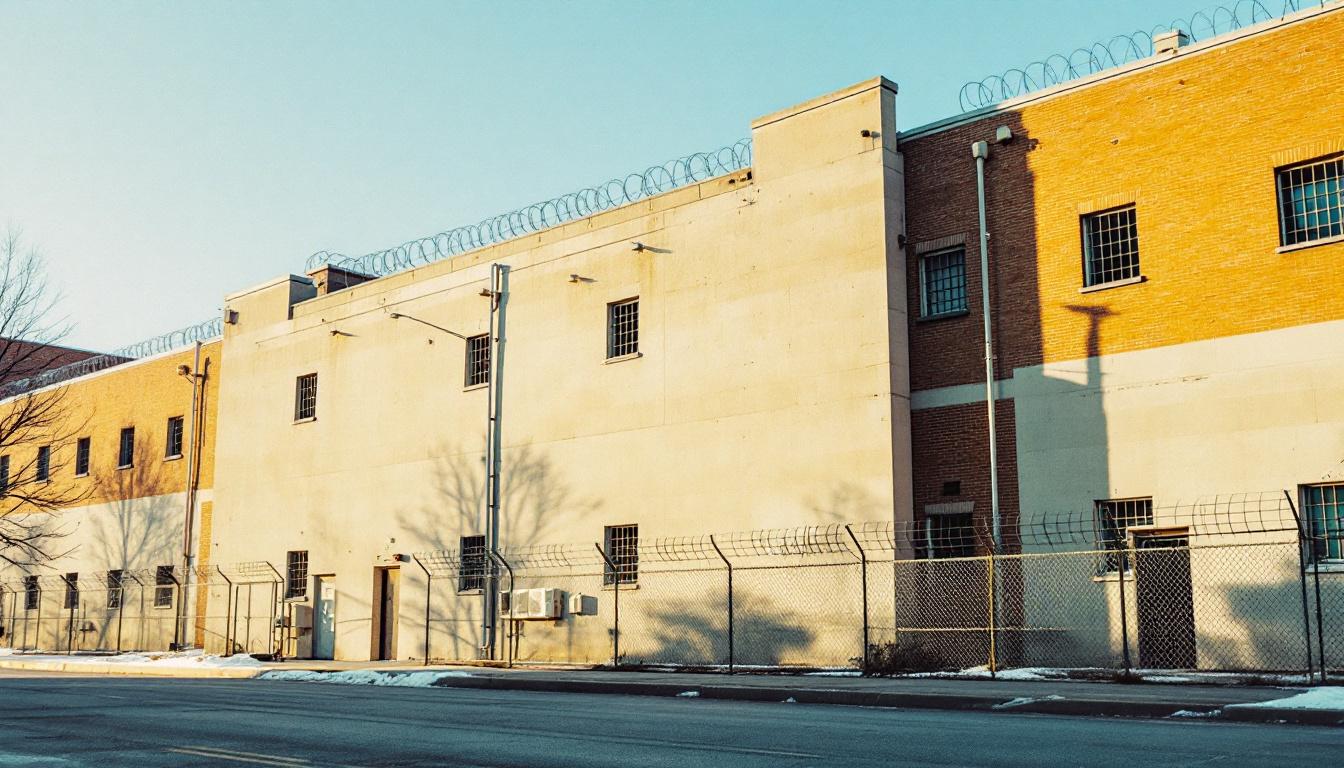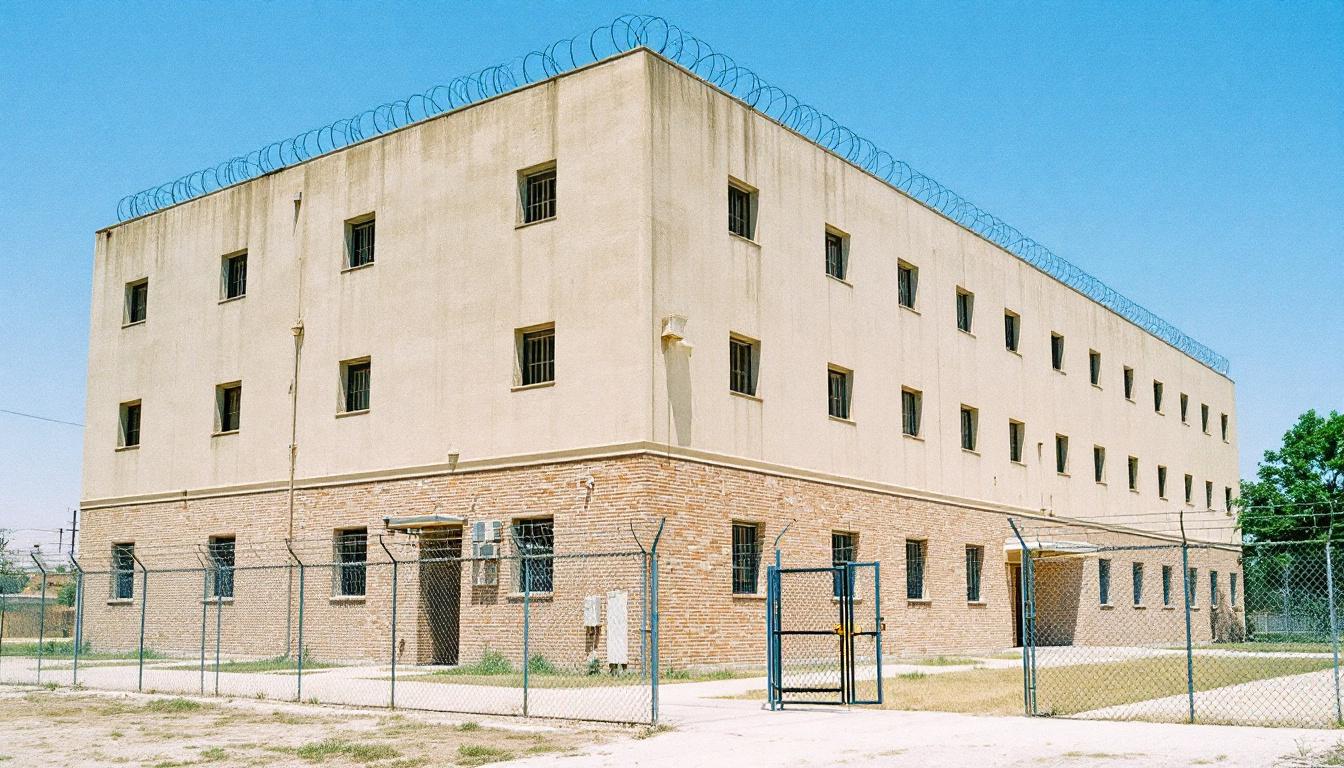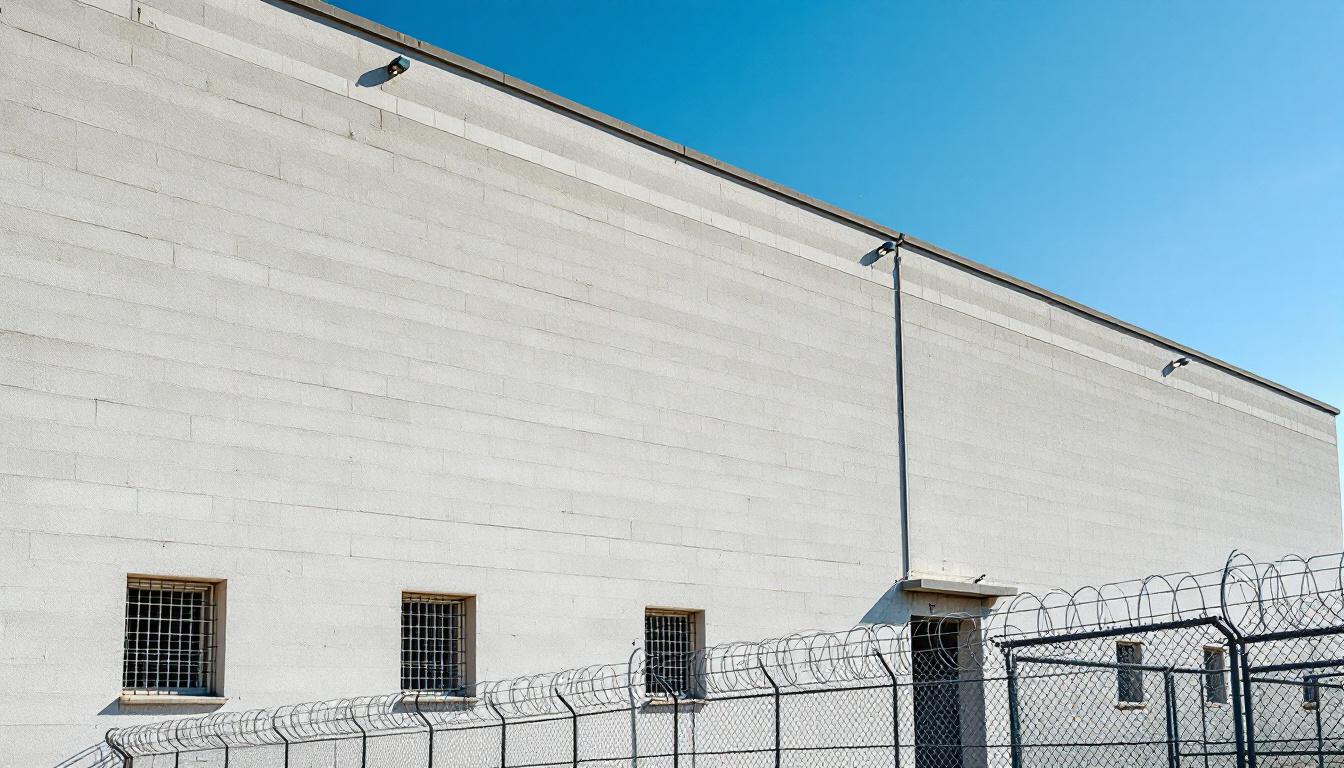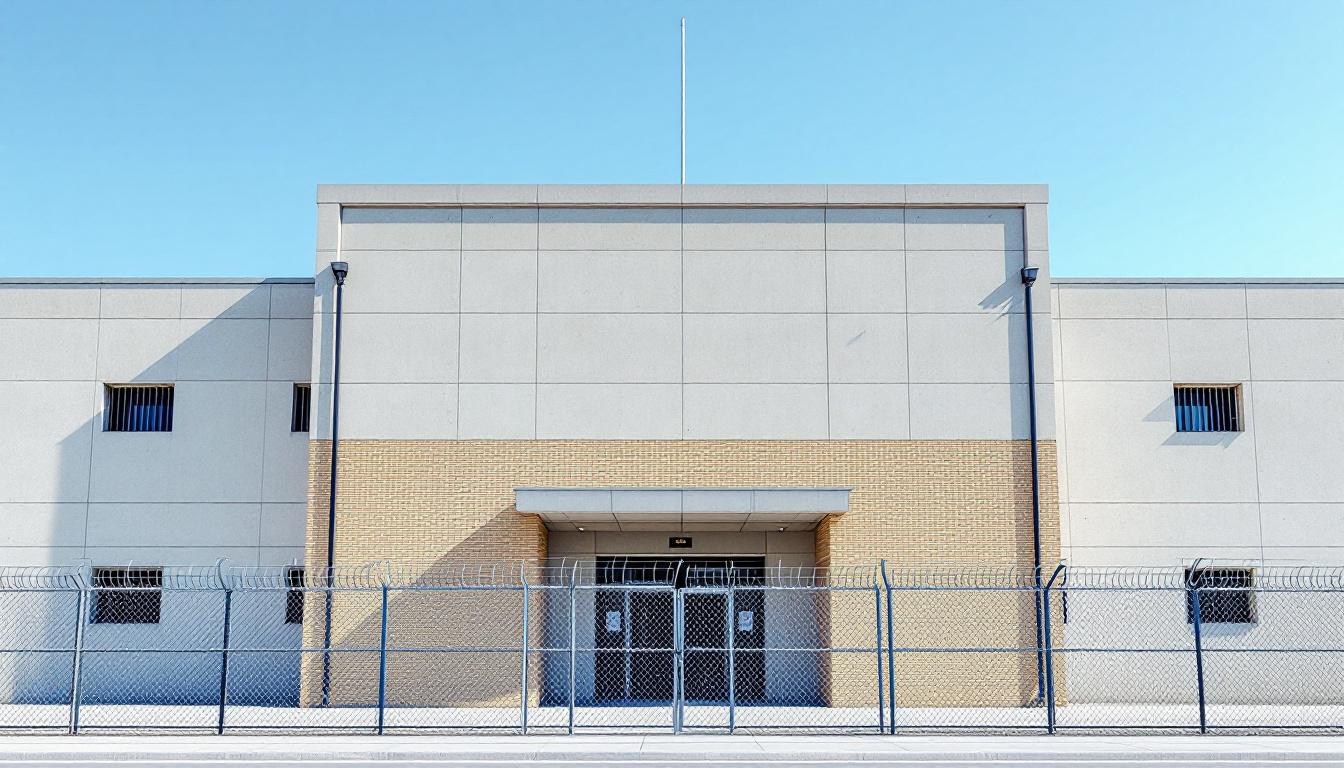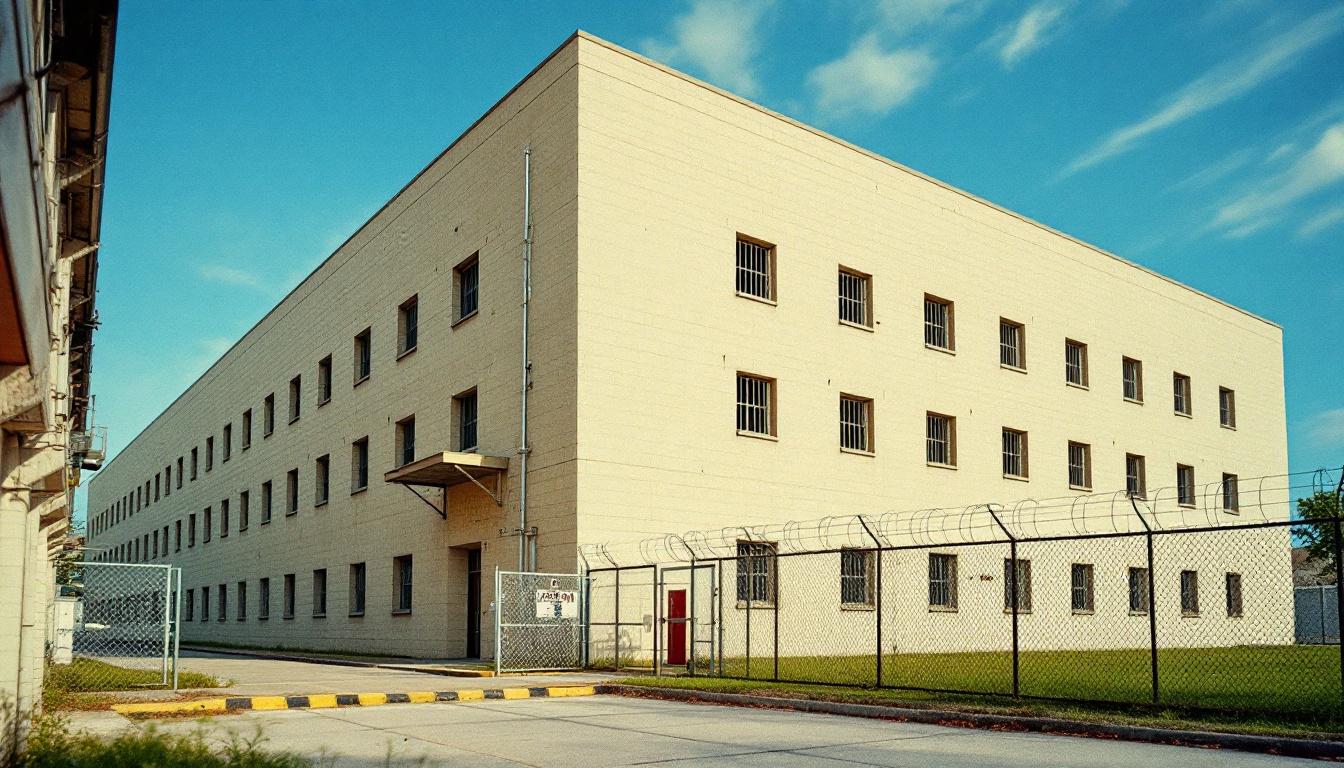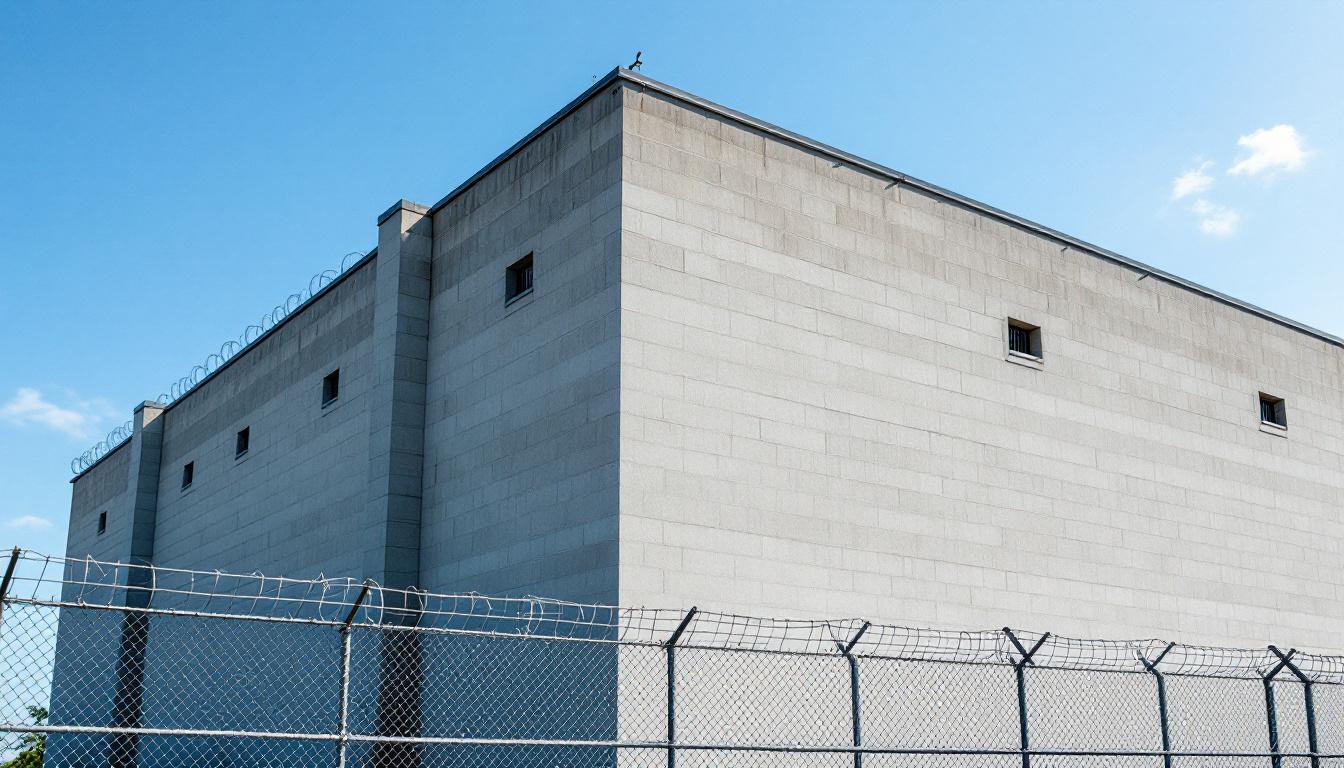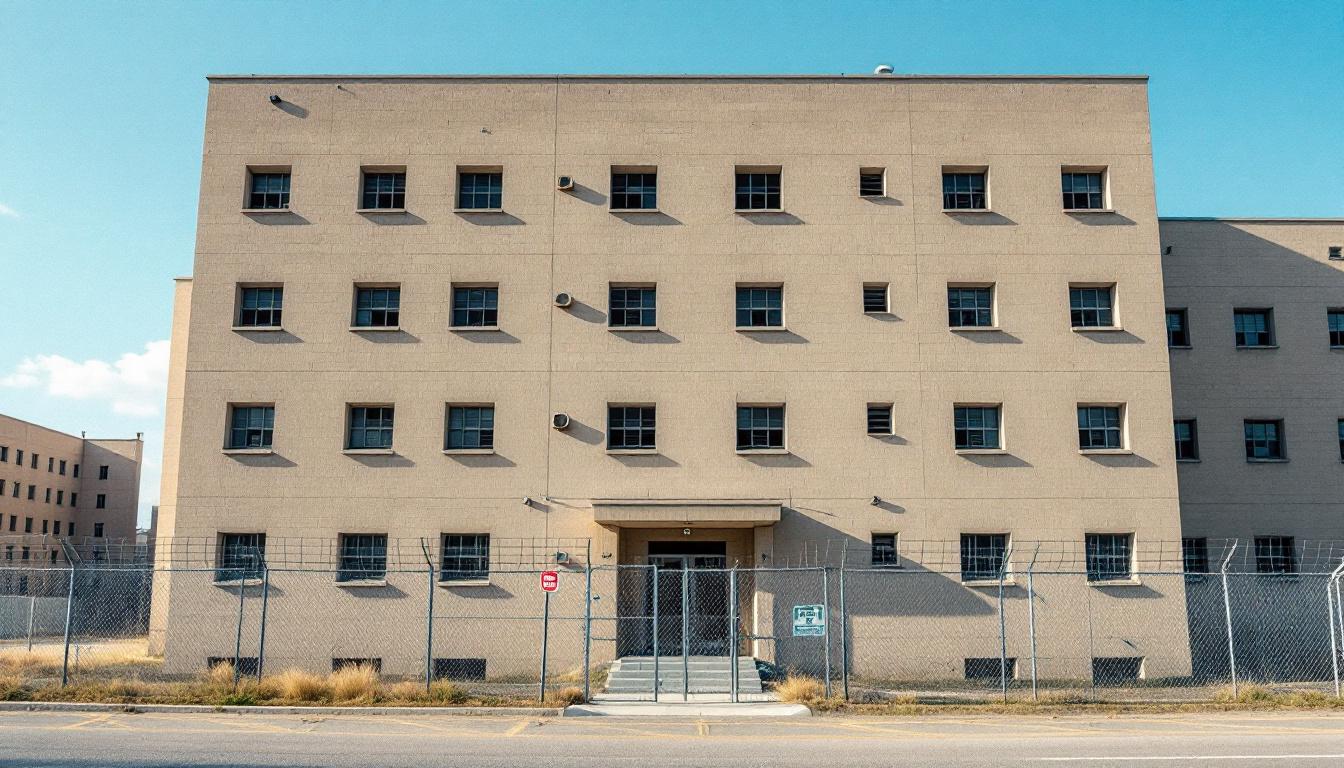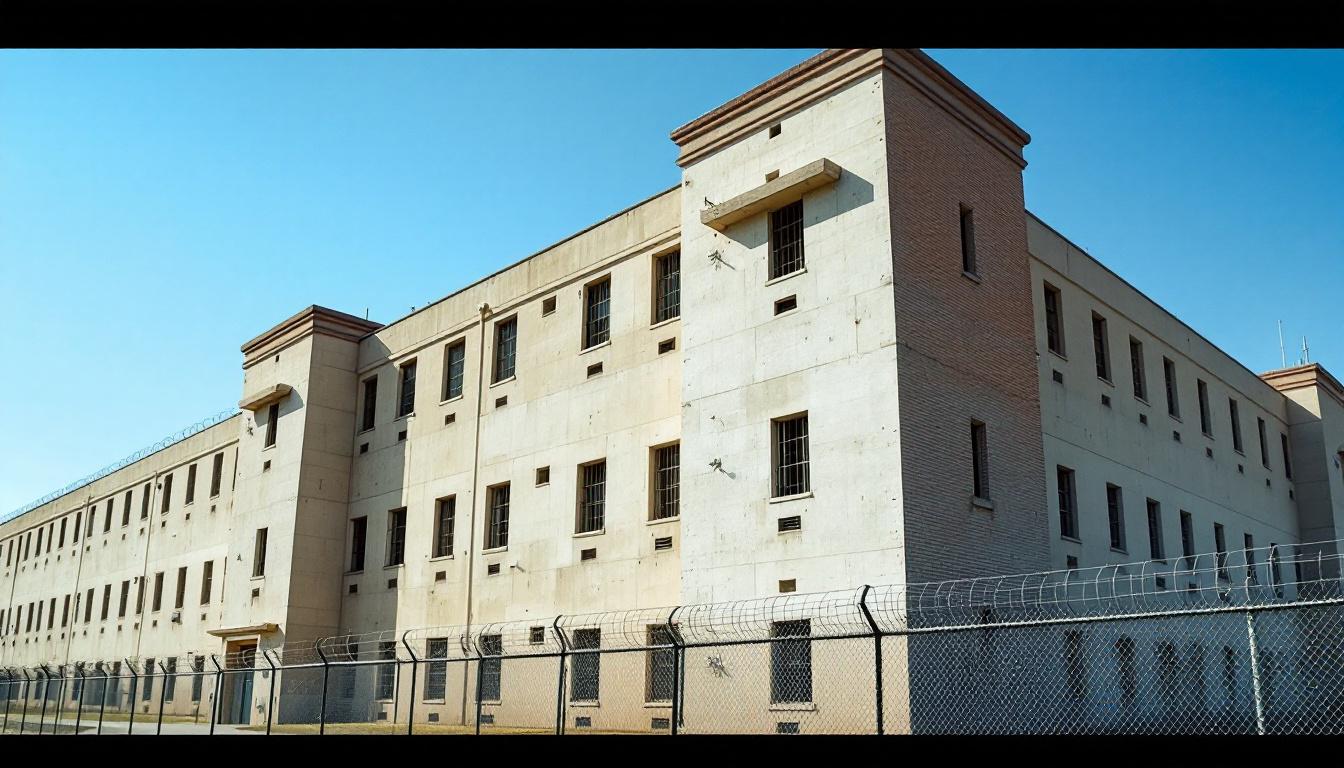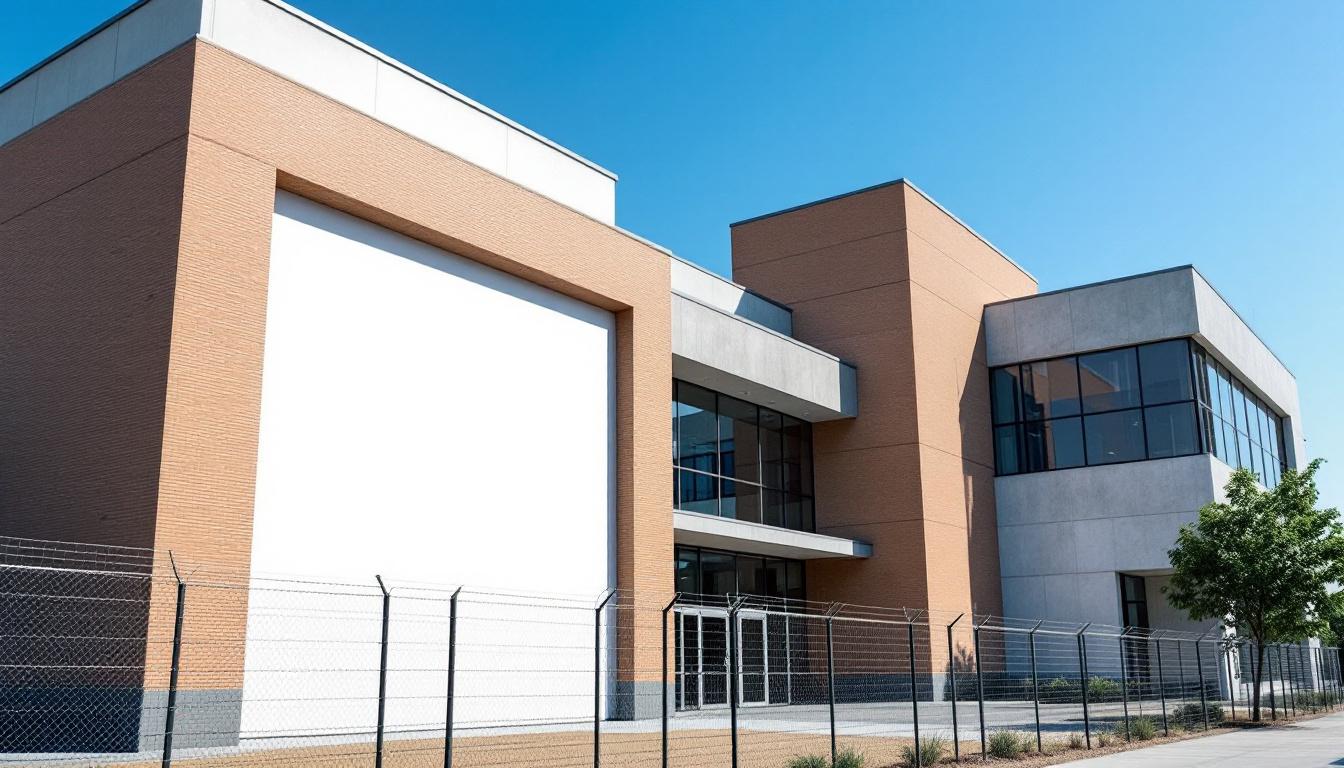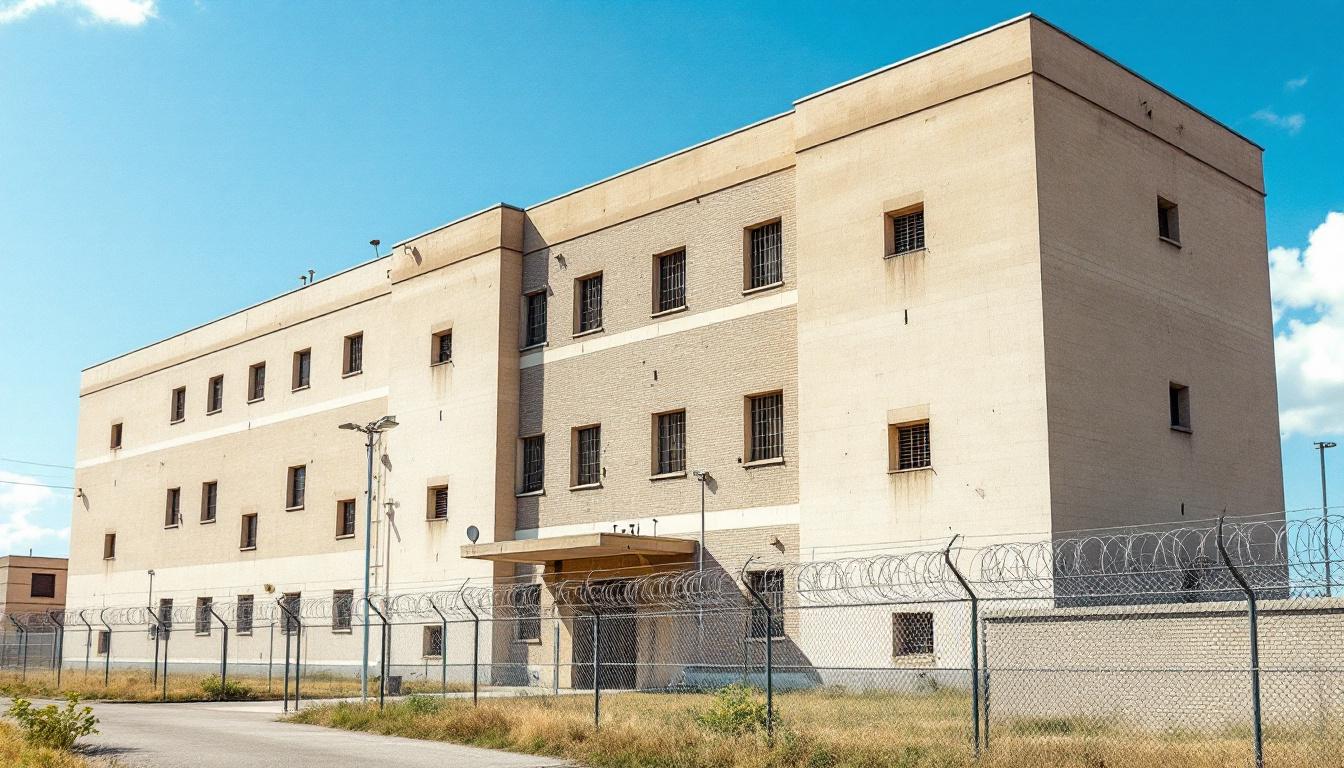
Quick Navigation
How to contact an inmate at Lee County Jail / Detention Center
This comprehensive guide will walk you through how to connect with an inmate at Lee County Jail / Detention Center. Follow the steps below to find an inmate and send letters and photos:
- Search for the inmate using our search tool below
- Create your account or log in to Penmate
- Write your message (up to 6,000 characters)
- Send instantly - inmates receive printed copies daily
Find an Inmate
Search for an inmate to start communicating today
Tip: You can search by first name, last name, or inmate ID number
To contact a person at Lee County Jail / Detention Center start by searching for the person on the official facility website. Perform a search by following these steps:
- Step 1: Enter their first name and last name into the search form and click "Search"
- Step 2: Locate their inmate record
- Step 3: Write down their Inmate ID and any housing information provided
Important! Be sure to enter the person's full name. Nicknames should not be used.
How to Send Messages to Inmates

You can use your phone or computer to send emails, letters, and photos to an inmate. Messages are sent electronically to inmate tablets or kiosks at the facility. If you would like to send a message, start by searching for an inmate at Lee County Jail / Detention Center.
Sending Photos and Postcards

A great way to send love and support to a loved one at Lee County Jail / Detention Center is to send photos and postcards. It only takes a few minutes to send photos from your phone and it makes a huge difference. You can also mail postcards with words of support and inspiration, or design your own postcard for special moments like birthdays and holidays.
Important! Be sure not to send any explicit photos or they may not be approved by the facility. You can also use a photo printing app like Penmate to make sure your photos are printed at the correct size (4x6 or 3x5) and are mailed according to the rules and regulations of Lee County Jail / Detention Center.
Frequently asked questions about Lee County Jail / Detention Center
-
How long does it take to deliver a message?
If you're sending an email message your letter is usually delivered within 24-48 hours. For messages sent via mail you should expect delivery within 3-7 days. All messages will need be approved by Lee County Jail / Detention Center.
-
How much does it cost to send a message to Lee County Jail / Detention Center?
You can send a message free using your phone or mail a message via USPS for the price of a $0.60 stamp and envelope. You can also purchase credits or e-stamps from services starting at $1.99.
-
What services can I use to contact an inmate at Lee County Jail / Detention Center?
Penmate
You can use Penmate to send letters and photos to an inmate from your phone. It's an easy way to stay in touch during your loved one's incarceration. Use the inmate locator to find an inmate's location and contact information, then you can send messages within a few minutes.
Securus messaging
Securus may be another option for communicating with an inmate at Lee County Jail / Detention Center. You can create a friends and family account and purchase credits to send messages. All messages will be reviewed and must be approved by the facility.
JPay
Some county jails and state prisons may support sending messages with JPay. You must register an account with the system, find your loved one, and purchase stamps to send messages. For some locations you can also attach photos.
Smart Jail Mail
You may also check if Smart Jail Mail is available at Lee County Jail / Detention Center. Smart Jail Mail is operated by Smart Communications and has contracted with some state and county jails. After purchasing credits, your messages and photos are sent to the facility, printed out, and then handed out to your loved one.
-
What is the mailing address of Lee County Jail / Detention Center?
Mailing address:
Lee County Jail / Detention Center
1900 Frederick Rd
Opelika, AL 36801
Phone: (334) 737-7050Business hours:
- Monday: Open 24 hours
- Tuesday: Open 24 hours
- Wednesday: Open 24 hours
- Thursday: Open 24 hours
- Friday: Open 24 hours
- Saturday: Open 24 hours
- Sunday: Open 24 hours
-
What are the visiting hours at Lee County Jail / Detention Center?
Visiting hours at Lee County Jail / Detention Center vary by housing unit and security level. Generally, visits are scheduled on weekends and holidays, with some facilities offering weekday visits. Contact the facility directly at (334) 737-7050 or check their website for the current visiting schedule. Visits typically last 30-60 minutes and must be scheduled in advance.
-
What items are prohibited when sending mail to Lee County Jail / Detention Center?
Prohibited items typically include: cash, personal checks, stamps, stickers, glitter, glue, tape, staples, paperclips, polaroid photos, musical or blank greeting cards, hardcover books, magazines with staples, and any items containing metal or electronics. Only send letters on plain white paper with blue or black ink. Photos must be printed on regular photo paper (no Polaroids). Always check with Lee County Jail / Detention Center for their specific mail policies.
-
How do I send money to an inmate at Lee County Jail / Detention Center?
You can send money to an inmate at Lee County Jail / Detention Center through several methods: 1) Online using JPay, Access Corrections, or the facility's approved vendor, 2) Money orders mailed directly to the facility with the inmate's name and ID number, 3) Kiosks located in the facility lobby, or 4) Over the phone using a credit or debit card. Fees vary by method, typically ranging from $2.95 to $11.95 per transaction.
-
Can I schedule a video visit with an inmate at Lee County Jail / Detention Center?
Many facilities now offer video visitation as an alternative to in-person visits. At Lee County Jail / Detention Center, video visits may be available through services like Penmate, Securus Video Connect, GTL, or ICSolutions. Video visits typically cost $10-20 for 20-30 minutes and must be scheduled in advance. You'll need a computer or smartphone with a camera and reliable internet connection. Contact the facility for their specific video visitation policies and approved vendors.
-
What identification do I need to visit an inmate at Lee County Jail / Detention Center?
All visitors must present valid government-issued photo identification such as a driver's license, state ID, passport, or military ID. Minors must be accompanied by a parent or legal guardian who can provide the minor's birth certificate. Some facilities require visitors to be on the inmate's approved visitation list, which may require a background check. Contact Lee County Jail / Detention Center for specific ID requirements and visitor approval procedures.
-
How can I find out an inmate's release date?
To find an inmate's release date at Lee County Jail / Detention Center, you can: 1) Use the online inmate search tool if available, 2) Call the facility's records department, 3) Contact the inmate's case manager or counselor, or 4) Have the inmate provide this information during a call or visit. For privacy reasons, some facilities only release this information to immediate family members.
Facility Overview
Contact Information
Lee County Jail / Detention Center1900 Frederick Rd
Opelika, AL 36801
Phone: (334) 737-7050
Official Website

About Lee County Jail / Detention Center
Nestled within the heart of east-central Alabama, Opelika serves as home to the Lee County Jail, a correctional facility that operates as an integral component of the state's broader detention and rehabilitation framework. This county-level institution typically houses individuals awaiting trial, serving shorter sentences, or participating in various court-ordered programs, while maintaining strong collaborative ties with local law enforcement agencies, judicial systems, and community organizations throughout the region. The facility generally emphasizes a balanced approach that addresses both public safety requirements and the rehabilitative needs of residents, reflecting Alabama's evolving correctional philosophy that recognizes the importance of preparing individuals for successful community reintegration.
Lee County Jail often provides residents with access to educational opportunities, vocational training programs, and substance abuse counseling services designed to address underlying factors that may contribute to criminal behavior. These initiatives typically operate in coordination with state correctional goals, focusing on skill development, personal accountability, and behavioral modification. The facility may also offer religious services, mental health support, and family visitation programs that help maintain crucial community connections during incarceration. Through this comprehensive approach to detention and rehabilitation, the jail serves not only as a secure holding facility but as a potential stepping stone toward positive life changes for residents preparing to return to the Opelika community and surrounding Lee County area.
Programs & Services
Educational initiatives form the cornerstone of rehabilitation efforts, with comprehensive programming designed to address the diverse learning needs of residents. These structured learning opportunities typically include basic literacy development, GED preparation, and distance learning options that allow individuals to continue their academic pursuits while incarcerated. The facility often emphasizes skill-building that directly translates to post-release success, creating pathways for residents to develop both foundational knowledge and practical competencies during their time of confinement.
Vocational training initiatives may deliver hands-on experience through building maintenance programs, where residents learn valuable trade skills while contributing to facility operations. These work-based learning opportunities often include electrical systems, plumbing basics, and general construction techniques that provide marketable skills upon release. In addition to this practical training, work release programs typically allow eligible residents to maintain employment in the community while serving their sentences, fostering continuity in their professional lives and supporting family financial stability.
Support services encompass a broad range of therapeutic and spiritual initiatives designed to address underlying issues that may have contributed to criminal behavior. Faith-based programs often provide spiritual guidance and community support, while volunteer programs connect residents with mentors and positive role models from the local community. These initiatives typically focus on personal development, substance abuse recovery, and life skills training that help residents build the foundation for successful reintegration into society upon their release.
Daily Life & Visitation
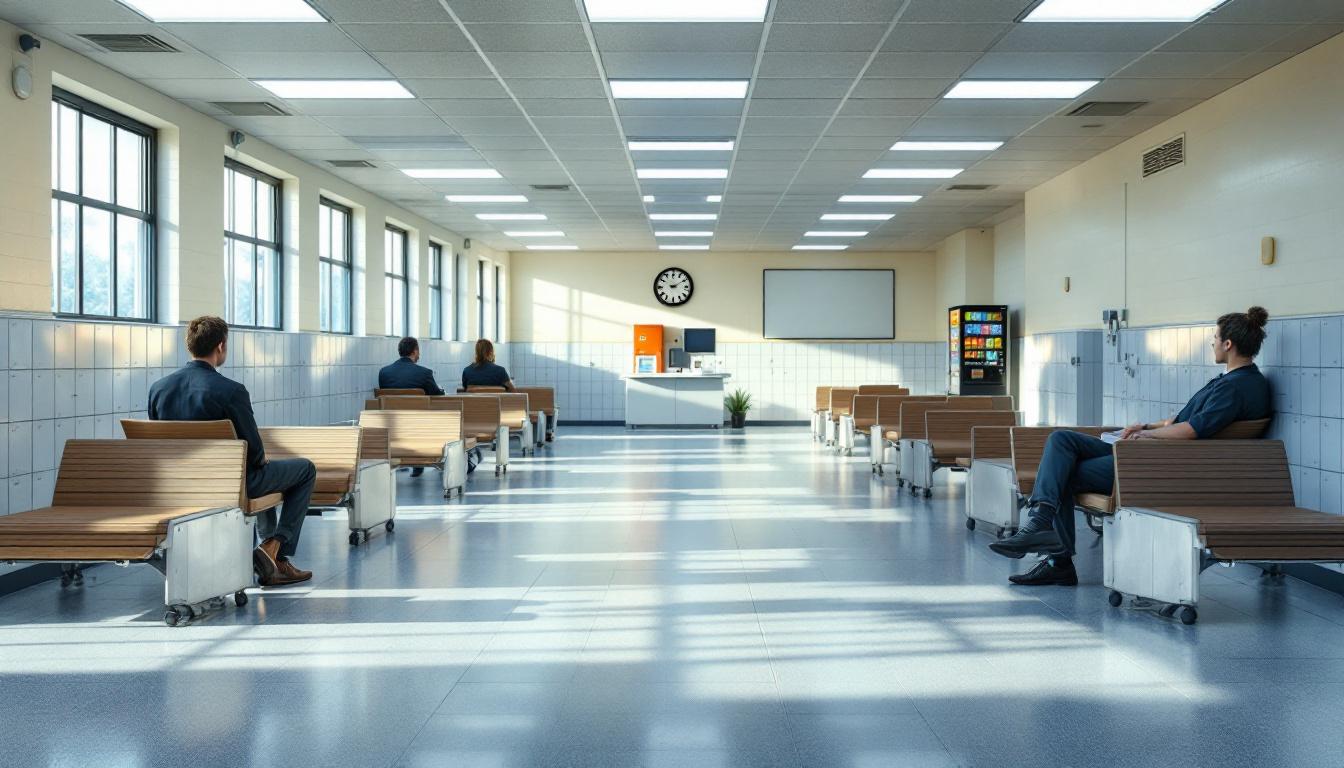
Structure forms the backbone of every day, with residents following carefully organized schedules that deliver predictability and order. At present, the facility actively maintains consistent routines that typically begin with early morning counts and meal service, followed by scheduled activities throughout the day. Wake-up generally occurs in the early morning hours, with residents preparing for the day ahead before participating in breakfast service. The structured approach continues with designated times for housing unit cleaning, recreation periods, and various programming opportunities that may be available.
Living accommodations generally consist of shared housing units where residents maintain their personal living spaces according to facility guidelines. Residents typically have access to basic amenities and may store approved personal property within established limits. Meal service usually follows a regular schedule, with dining arrangements that accommodate the facility's population in an orderly manner. In addition to this basic structure, residents often have opportunities to participate in recreation and exercise activities during designated periods, which may include outdoor time when weather and security conditions permit.
Despite this structured environment, the facility typically provides various ways for residents to maintain connections with family and friends through scheduled visitation programs and communication options. Work assignments within the facility may be available to eligible residents, offering opportunities to contribute to daily operations while developing routine and responsibility. Programming schedules often deliver educational or rehabilitative activities that support personal development goals. The commissary system generally allows residents to purchase approved items to supplement their basic needs, while family support systems remain an important component of the overall experience for many residents during their time at the facility.
Ready to Connect?
Start communicating with your loved one today
Search for an Inmate
